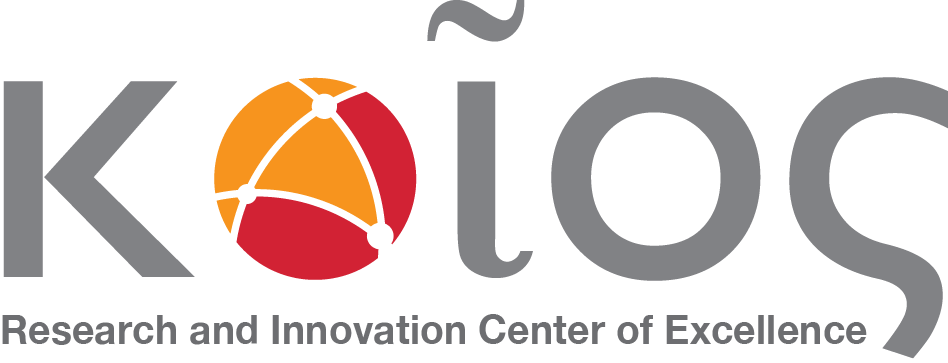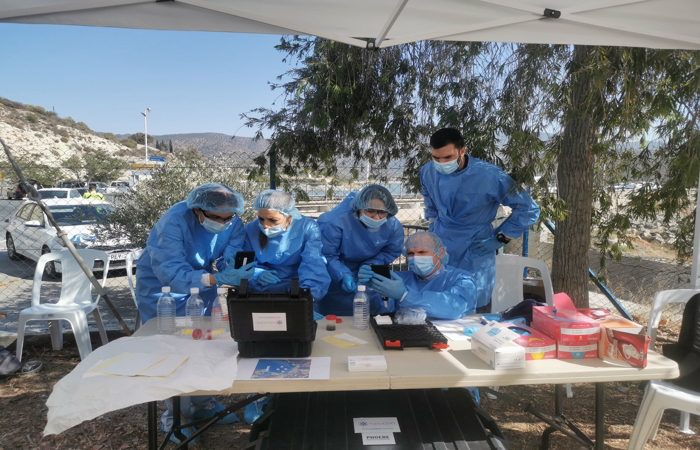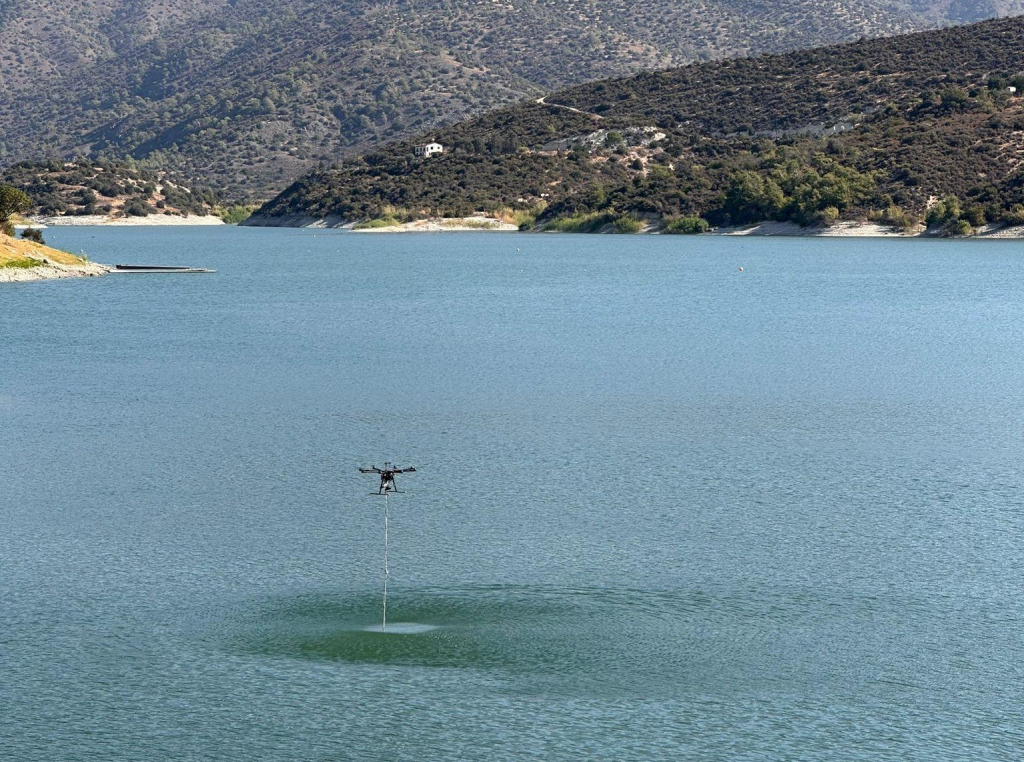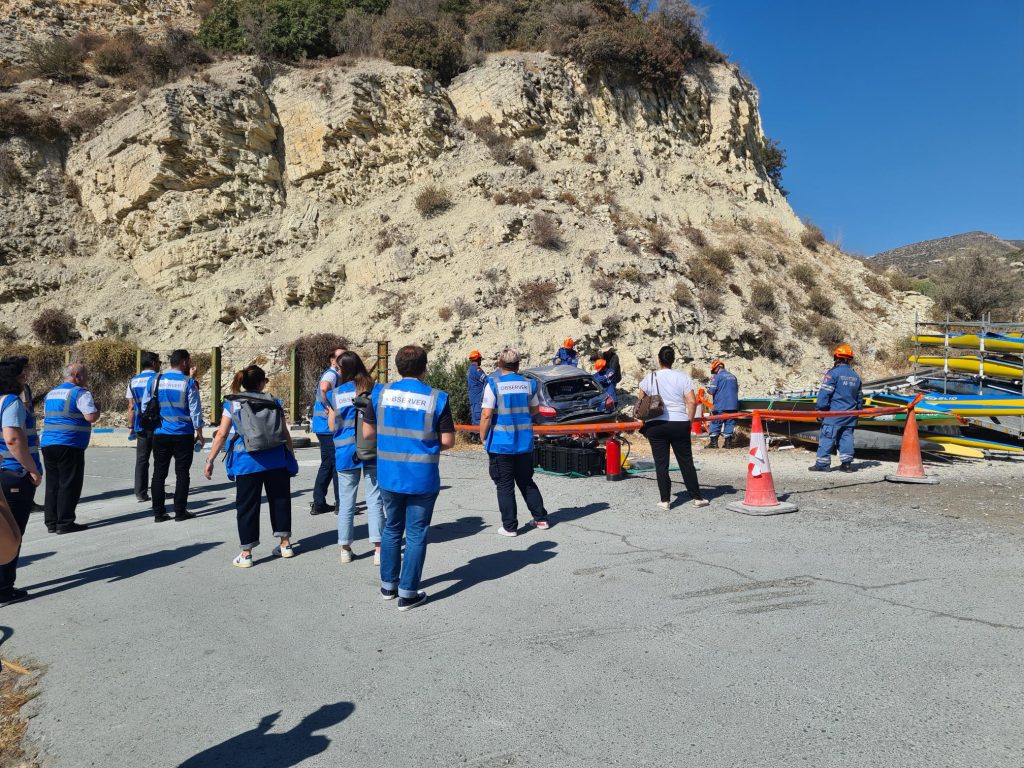In September 2023, a large-scale simulation exercise for surface and urban water contamination took place in Limassol, Cyprus. More than 100 first responders, water operators and experts from Cyprus, Europe, and South Korea had the opportunity to experience and evaluate innovative technologies that were developed within the context of the European research project PathoCERT.
The exercise was organized by the Cyprus Civil Defence in collaboration with the KIOS Center of Excellence. The Limassol Water Board, the Water Development Department, the Limassol-Amathus Sewerage Board, and the Cyprus Police had also an active role in the exercise. In the exercise scenario considered, two events occurred at the same time: i) a strong earthquake in the eastern Mediterranean Sea, causing damage to sewage infrastructure, dams, and water supply systems in the area of Germasogeia, Limassol; and ii) a collision of a tanker truck with another vehicle, with the tanker truck, carrying an unknown liquid cargo, possibly contaminated with sewage, falling into the reservoir and having its content released in the water. As a result of both events, contaminants were introduced into the water supply network of the city of Limassol.
During the exercise, first responders and water operators tested various new technologies in the field, including:
PathoTESTICK: An electronic rapid test for the detection of dangerous pathogens in surface and drinking water in less than a minute.
PathoDRONE: Autonomous drones with water sampling and mapping capabilities that can be used in difficult or inaccessible areas.
PathoIMS: A software tool for the command-and-control station to improve coordination and communication of information between first responders and the headquarters.
PathoINVEST: A model-based tool for risk assessment and tools for the early detection of contamination sources.
PathoTHREAT: A knowledge database tool containing pathogen information collected by using AI-tools.
PathoVIEW: An application for mobile/tablet to enable information exchange between water operators, as well as wearable devices (e.g., smart watches, haptic vests, augmented reality glasses) to enhance sensing and awareness capabilities of first responders.
PathoSENSE: Portable sensors for rapid detection of pathogens in the water and a data processing system.
PathoGIS: A tool for displaying geospatial information related to the incident.
PathoWARE: A software tool that collects and processes relevant data from different sources.
According to the KIOS Research Assistant Professor and Technical Coordinator of the PathoCERT project, Dr. Demetris Eliades, “first responders are among the first to respond to water crises, such as the recent catastrophic floods in Thessaly, Greece, which caused health problems to both responders and citizens. The use of PathoCERT technologies by first responders can significantly contribute to their protection, as they will be able to rapidly detect dangerous pathogens in surface and drinking water. At the same time, water authorities will have the tools to identify, assess, and manage risks as well as the support systems for decision-making. PathoCERT is a collaboration between organizations from 12 countries with expertise in water-related topics and emergency response. Our vision is to develop technologies that can be applied anywhere in the world and protect as many lives as possible”.
On behalf of the Cyprus Civil Defence, Mrs. Eftychia Stokkou said that the exercise gave the opportunity to first responders and water operators to collaborate effectively and test various PathoCERT technologies in realistic conditions.
The Director of the Limassol Water Board, Mr. Socrates Metaxas, said that water supply distributors are facing challenges, such as climate change, which significantly affects the availability and quality of water and poses serious threats to humans and the environment. “In emergencies, we need to be well-prepared to help first responders effectively manage water contamination events. For this reason, the Water Board of Limassol actively participated in the exercise, during which PathoCERT technologies were field-tested and evaluated to ensure the efficient management of water”, he concluded.
Have a look at the video here to discover how these technologies benefit first-responders and decision-makers.
More information about the project can be found at can be found at www.pathocert.eu
![]()
The PathoCERT project has received funding from the European Union’s Horizon 2020 research and innovation programme under grant agreement No 883484.





